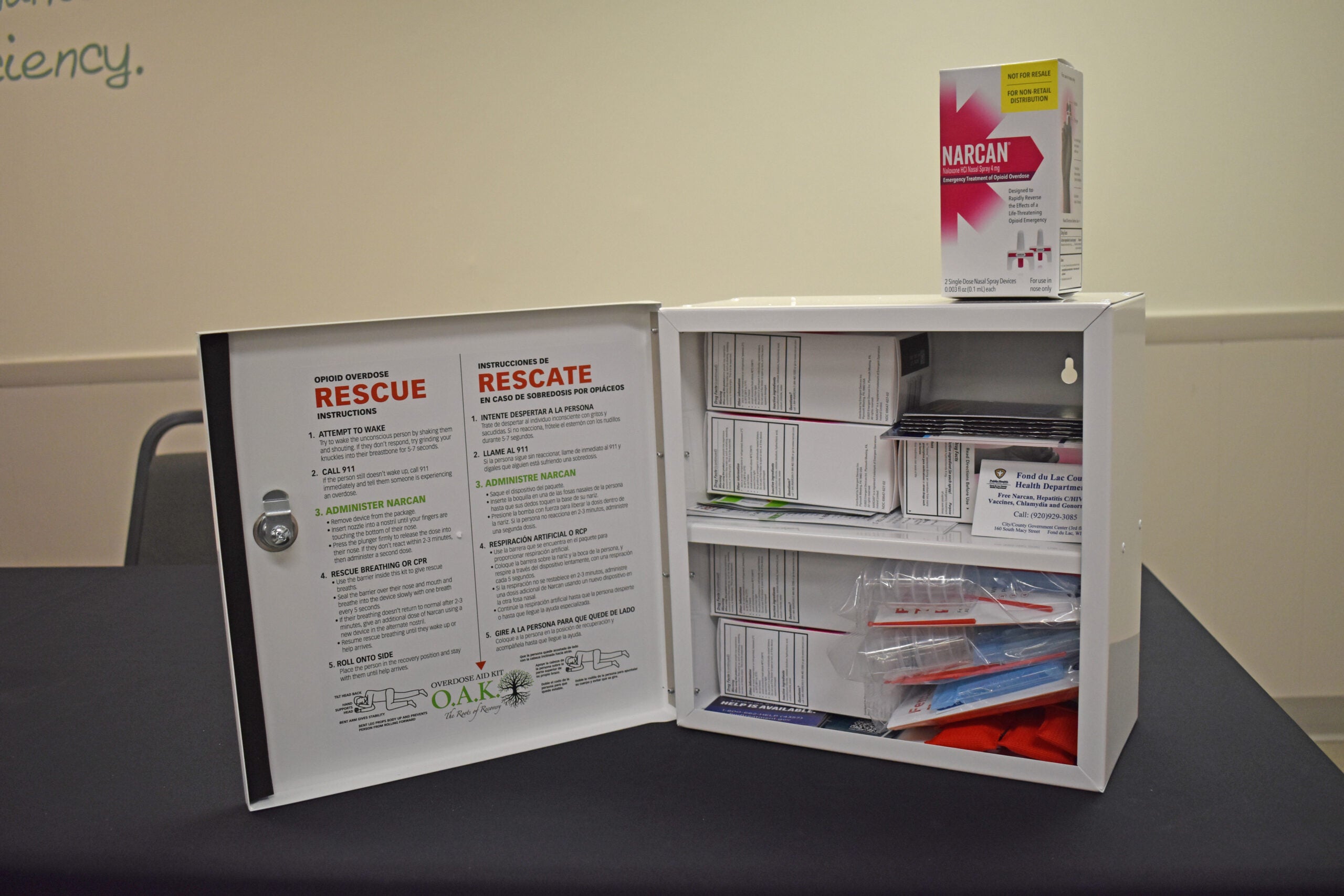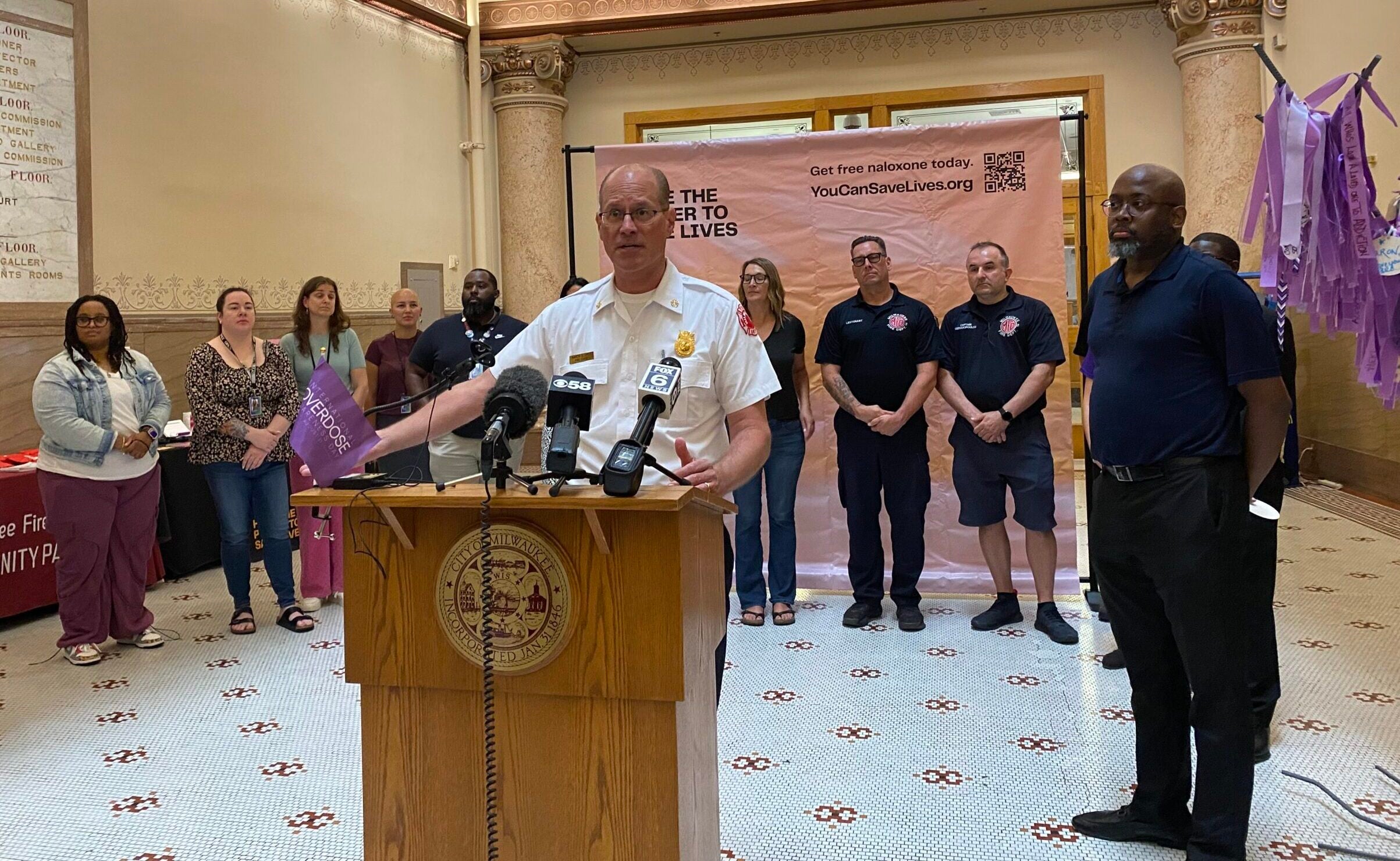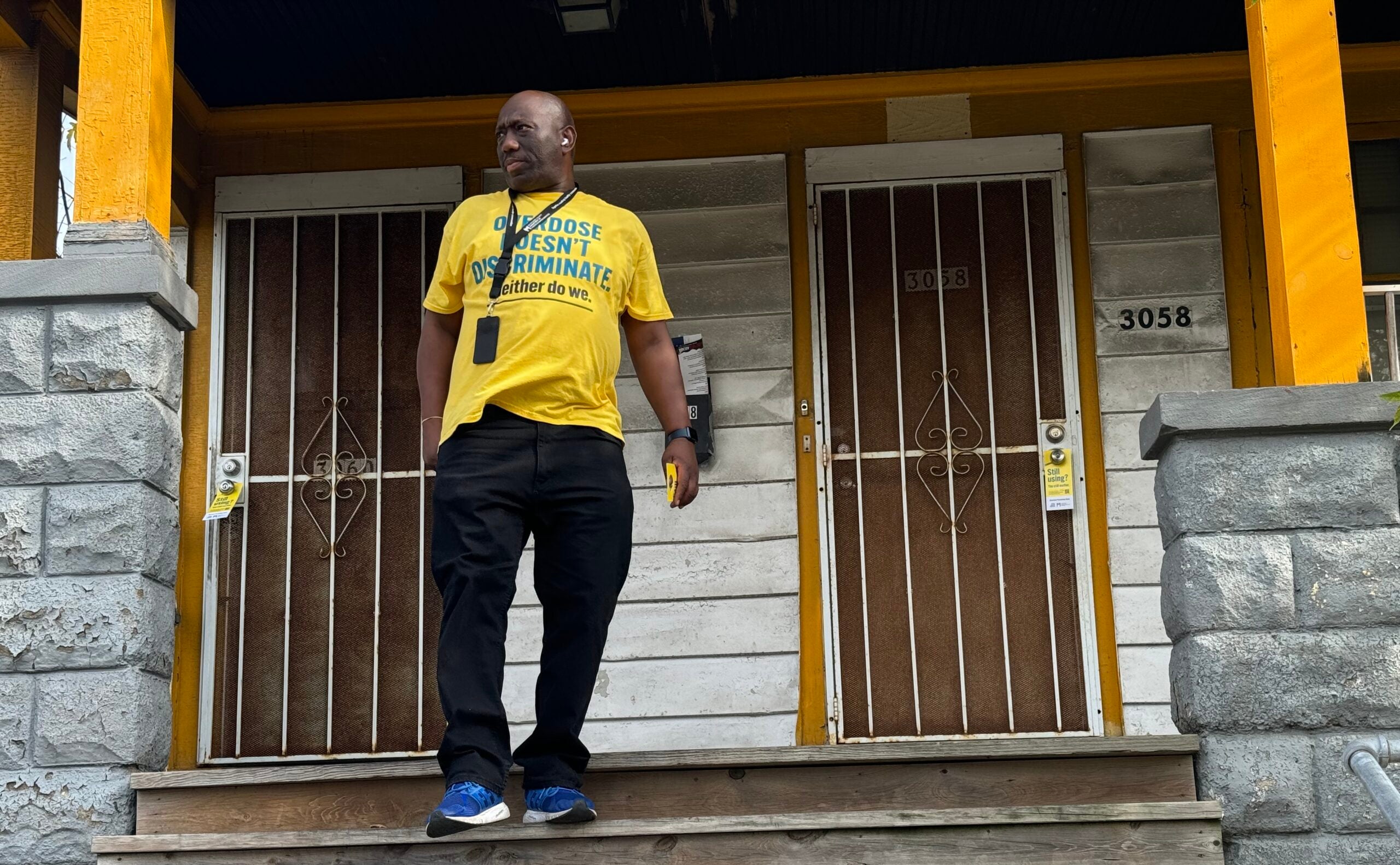Fond du Lac resident Sue Fischer’s son, Kevin, died in March 2020 of fentanyl poisoning.
Kevin had been living in Washington State for more than a year, and had just started his own masonry business, Fischer said. He also played the drums and had been in bands for years. His mother described him as “just a young, fun, goofy kid.”
“He was not an addict,” Fischer said. “He used drugs and he got some laced pills and was dead that quick.”
News with a little more humanity
WPR’s “Wisconsin Today” newsletter keeps you connected to the state you love without feeling overwhelmed. No paywall. No agenda. No corporate filter.
After his death, Fischer said two of her children, along with Kevin’s friends and former bandmates, held a fundraiser that raised $10,000. Fischer says the family is using the money to help prevent other parents from losing a child to the opioid crisis.
“My son is dead. I can’t bring him back,” she said. “But we can, hopefully, save someone else.”
That’s why she donated to an effort to install nine overdose aid kits at eight locations in Fond du Lac County. Fisher said she hopes having more resources available in the community will raise awareness around the dangers of fentanyl.
“I have friends I went to high school with that have lost their children, plus other friends in town, from laced pills, from poisoning,” she said. “When I grew up, we did drugs, but you didn’t have to worry about this. People don’t think it’s going to affect them.”
The overdose aid kits, or OAKs, are being donated to organizations by local family members who lost loved ones to an opioid overdose. The kits contain overdose reversal drug naloxone, also known by the brand name Narcan, as well as fentanyl test strips that can detect fentanyl in other drugs.
At a press conference on Jan. 7, local leaders said the OAKs will make resources like naloxone and fentanyl test strips available to the community for free. Those leading the effort include the Fond du Lac County Health Department, local parents affected by overdose, local nonprofits and the national nonprofit Clinton Foundation.
Sarah Gradinjan, community health and prevention supervisor at the Fond du Lac County Health Department, said the goal is to make harm reduction resources “as low-barrier as possible to access.”
“It’s out in the community, and it’s accessible for anyone who’s at risk of an overdose or knows someone, a family member, a friend,” she said. “Those are the people that we’d like to reach, who are in a position to witness an overdose or know someone who’s really at that high risk moment.”
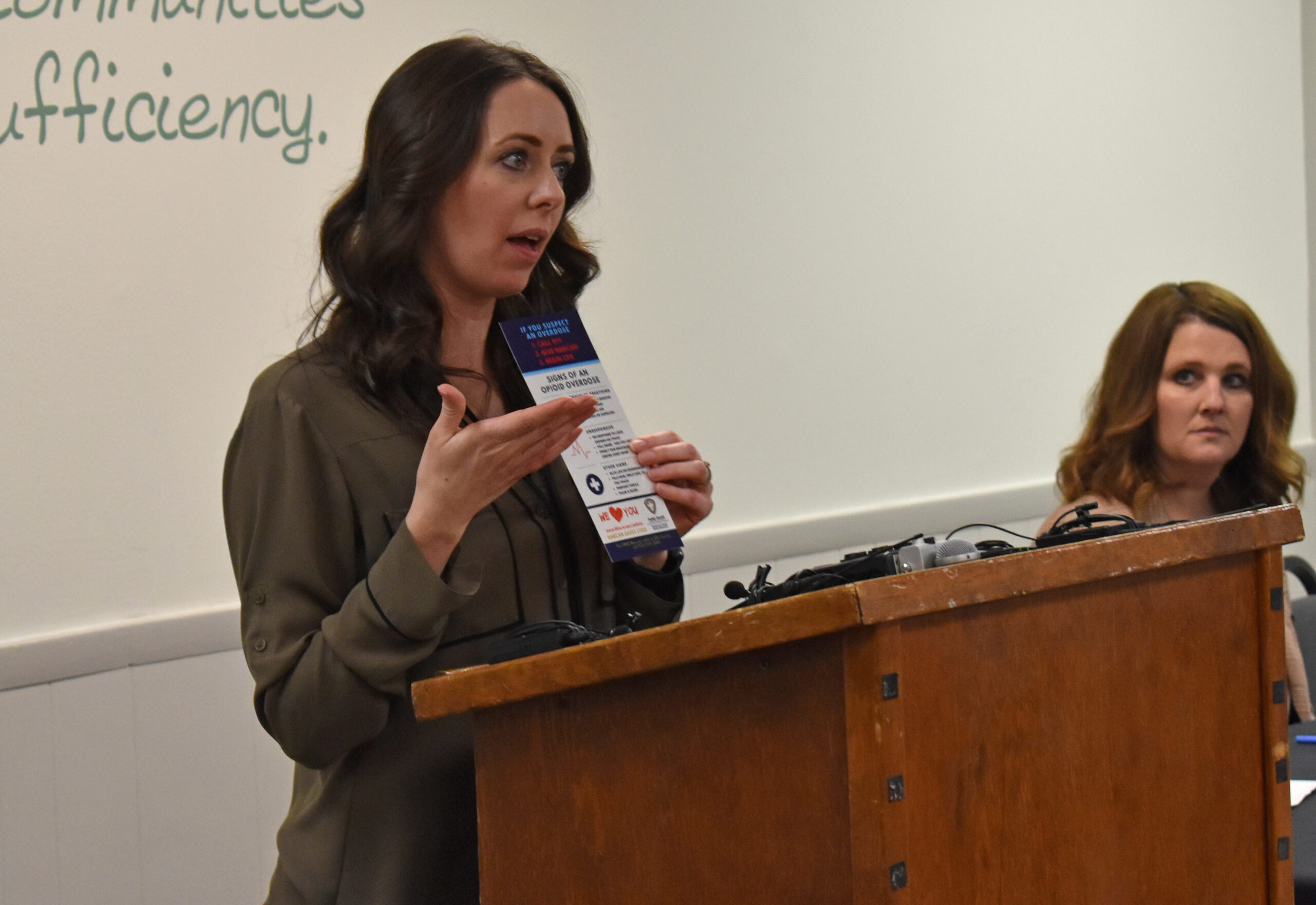
The effort comes after Fond du Lac County had 26 opioid-related deaths in 2023, up from 19 in both 2022 and 2021, according to data from the state Department of Health Services. Data for 2024 is not yet available.
Fentanyl was present in 87 percent of the county’s 24 overdose deaths in 2023, and 65 percent of overdose deaths included a combination of opioids and stimulants, according to the Fond du Lac County Suicide and Overdose Death Review Team Annual Report.
“The reality is fentanyl is in our community, and it’s an opioid with extremely high potency,” Gradinjan said. “It’s being mixed into drugs such as meth, heroin and cocaine, and being pressed into fake pills. No one may know it’s there, unless they test for it.”
There were 1,421 opioid-related deaths statewide in 2023, down about 3 percent from 1,464 deaths in 2022, according to the Department of Health Services.
Nationally, overdose deaths rose steadily during the COVID-19 pandemic in 2020 and 2021 after hovering around 70,000 monthly deaths for much of 2018 and 2019, data from the U.S. Centers for Disease Control and Prevention shows.
Nationwide there were between about 108,000 to 111,000 monthly overdose deaths for much of 2022 and 2023. However, those deaths have been declining since August 2023 and were down to around 90,000 deaths by July 2024, CDC data shows.
While local data for 2024 is not yet available, Vance Henning, a detective for the Fond du Lac Police Department, said overdose deaths in 2024 appeared to be down from 2023.
Like Fond du Lac, communities across Wisconsin have been working to make harm-reduction resources, like naloxone, more widely available.
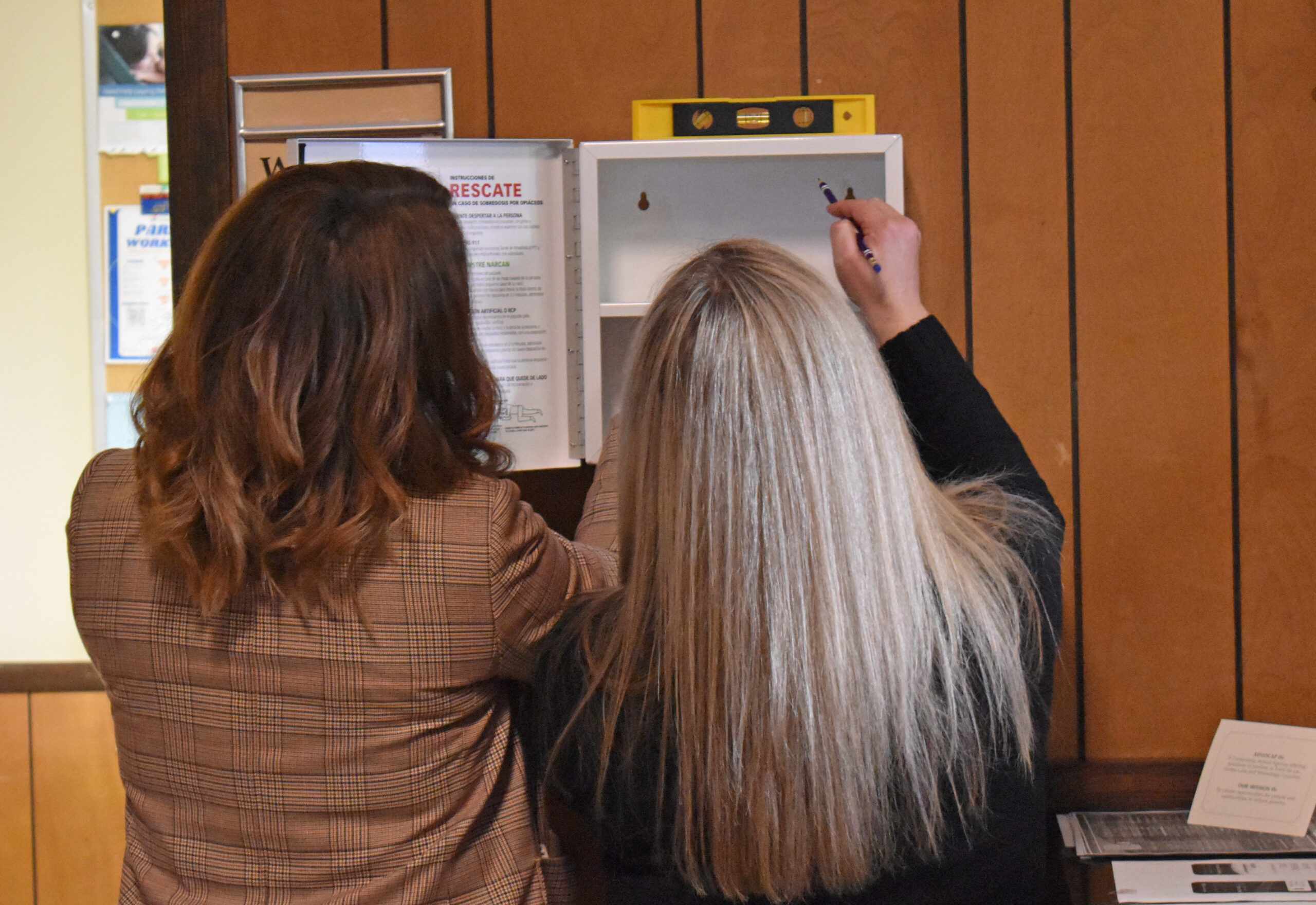
Since 2019, the Clinton Foundation has helped install more than 3,500 opioid aid kits across the country and more than 900 in Wisconsin, according to Jessica Geschke, senior project manager in the Overdose Response Network with the Clinton Foundation.
Geschke, who also leads the Wisconsin-based nonprofit Start Healing Now, says she’s seen the effects of the opioid crisis firsthand. Her brother struggled with a heroin addiction and is now in recovery, while she’s in long-term recovery and celebrated 20 years sober last year, she said.
Geschke says ensuring Narcan is widely available is critical to saving lives.
“I want anyone and everyone to have Narcan on their person,” she said. “This should just be like a Band-Aid in your purse.”
Wisconsin Public Radio, © Copyright 2025, Board of Regents of the University of Wisconsin System and Wisconsin Educational Communications Board.

